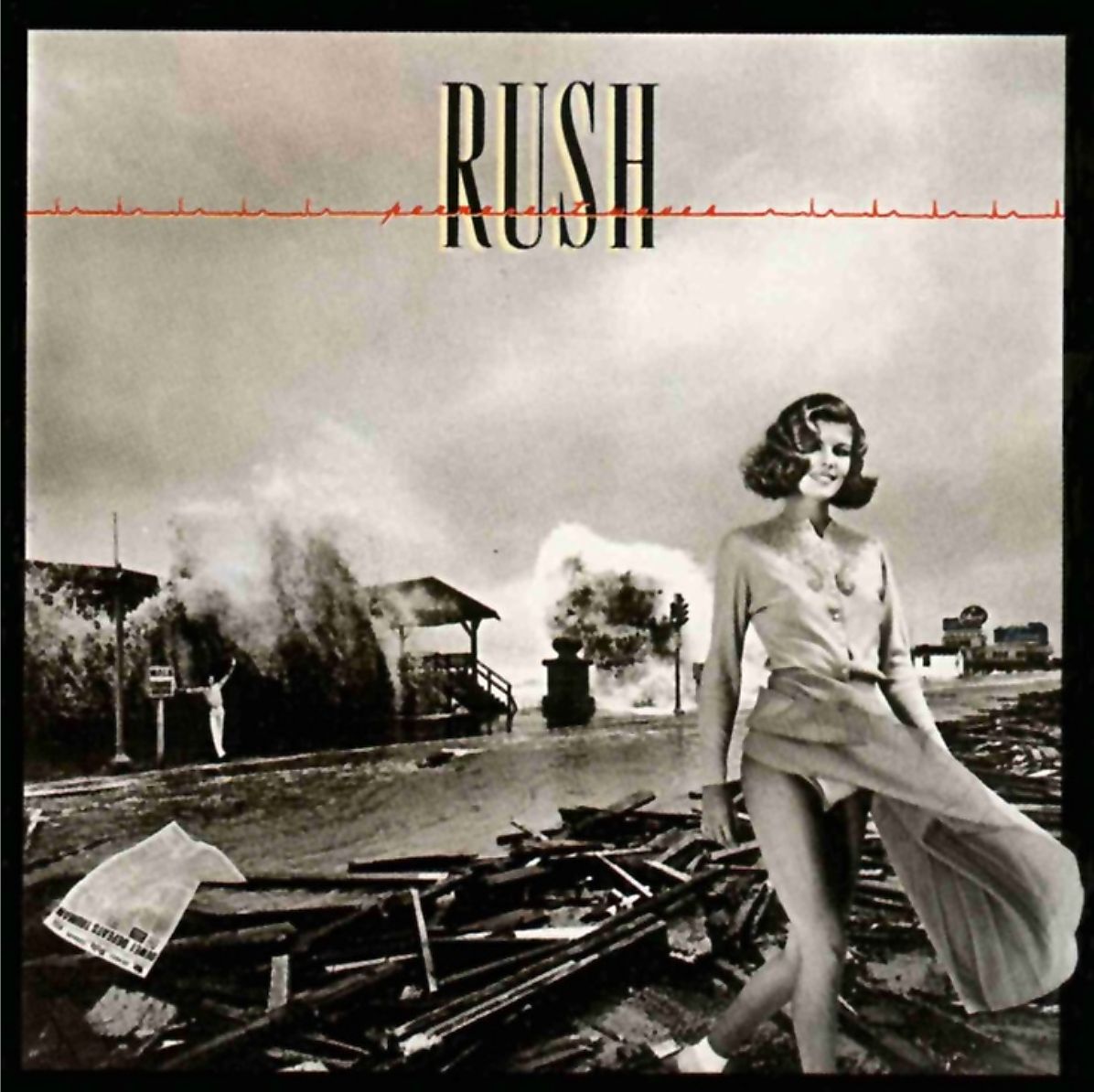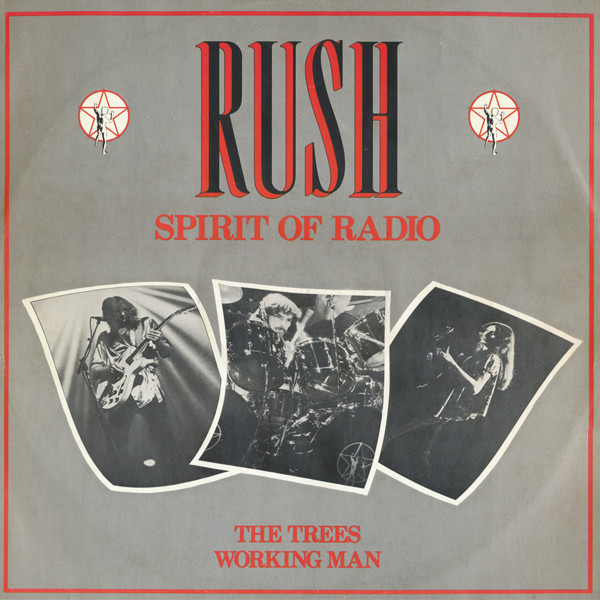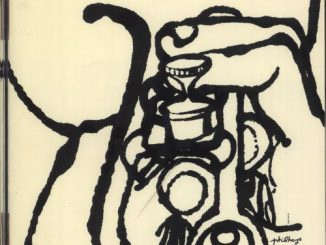Written by Phil Ashdown.

At the end of Rush’s colossal world tour in support of their epic Hemispheres album in June 1979 each member agreed to take a six-week sabbatical before work would begin on a follow up record. This was a first for the band and showed the toll the grueling eight month trek had taken on the members. They finally got together in mid-July 1979 at Lakewoods Farm near Flesherton., Ontario to write and rehearse new material for two weeks. The band set up their equipment and put down what drummer Neil Peart described as “a giant hodge-podge of instrumental mish-mash”. This was not fully developed but some parts were used during passages of other songs recorded. Typically guitarist Alex Lifeson and bassist Geddy Lee would work on musical ideas while Peart would walk to a nearby cottage to write lyrics.
New songs would take the band into a more straightforward style with tracks taking on a more concise structure whilst retaining their trade-mark time changes and complex arrangements. The Spirit Of Radio, Enre Nous, Freewill and Jacob’s Ladder were put together within several days without much effort. Peart attempted to write a song based on the King Arthur myths but abandoned the ides after it felt out of place among the new material. At this stage they moved into Sound Kitchen Studio in Toronto with their producer Terry Brown to get some ideas and finished songs on tape. In September 1979 Rush went to Le Studio in Morin-Heights, Quebec to record Permanent Waves with Brown and engineer Paul Northfield.
The recording sessions involved the band tweaking the settings of instruments and positioning of microphones and recording tracks with multiple takes until they had the best performance. While Lee, Lifeson, and Brown began overdubs, Peart began attempting to write another longer song that would evolve into Natural Science. The water sounds used in the opening of the song was recorded by splashing oars in the private lake and the natural echo outside was used to record some instruments. Photographer Fin Costello was brought in to take pictures of the band during recording and long-term cover art director Hugh Syme even recorded a piano solo on the song Different Strings. With rough mixes complete the final mix was completed at London’s Trident Studios in just two weeks.
Permanent Waves became the band’s seventh studio album and was finally released on 14th January 1980. It received a mostly positive reception from critics and it became their most successful album to date, reaching number 3 in both the UK and Canada and number 4 in the US.

An edited version of The Spirit Of Radio was released as a single in March. This song saw the band experimenting with reggae rhythms and sounds and lyrically the song is a lament on the change of FM radio from free-form to commercial formats during the late 1970s. the single was an unlikely hit in the UK peaking at number 13 in the singles charts.
“Jacob’s Ladder” uses multiple time signatures, and possesses a dark, ominous feel in its first half. Its lyrics are based on a simple concept: a vision of sunlight breaking through storm clouds. The title is a reference to the natural phenomenon of the sun breaking through the clouds in visible rays, which in turn is named after the Biblical ladder to Heaven on which Jacob saw angels ascending and descending in a vision.
While the band began stepping back from the epic song format on this album, the closing track “Natural Science” is more than nine minutes long and is composed of three distinct movements: I) Tide Pools, II) Hyperspace, and III) Permanent Waves.
The cover artwork was once again designed by long-time band associate Hugh Syme and attracted some controversy because of the newspaper headline ‘Dewey Defeats Truman. The Chicago Tribune complained so the text was changed to Dewei Defeats Truman. Some later versions have the headline blanked out and appears as a white box. The billboards in the distance were changed from Coca-Cola to include each band members’ name in a similar font. The background scene comes from a photo, taken by Flip Schulke, of the Galveston Seawall in Texas during Hurricane Carla on September 11, 1961. The woman in the foreground is Canadian model Paula Turnbull and the man waving in the background is Syme himself. The title is a play on words on the crashing waves, the waving man and the waves in the woman’s hair.
The Permanent Waves tour saw the band perform to over 650,000 fans over the course of 96 shows from January 17th to June 22nd 1980. The tour included several ‘evening with’ shows as a special treat that several years later would become a Rush norm. Their growing popularity was reflected in the size of the new production that included sixty tons of equipment. They toured with a 25-member road crew and the lighting included Boeing 707 landing lights, a $50,000 mixing desk and for the first time, a projector behind the band. The tour cost $12,500 each day and the three band members earned $1,000 per show. The ‘evening with’ shows included five sold-out shows at London’s Hammersmith Odeon and were recorded for future use. It was also the first time a Rush tour turned a profit.
Explore eil.com & 991.com sister – the world’s best online store for rare, collectable & out of print Vinyl Records, CDs & Music memorabilia since 1987.
EIL.COM Favourite Music Update Rare CDs, CD Singles, Rare Records, Vinyl Records, Albums and Music
- Rush - Exit... Stage Left - VG - UK - 2-LP vinyl set - £25.00, $32.25, €29.50 (Back In Stock) (arrived 07-Apr-2025 16:00)on April 7, 2025 at 5:04 pm
RUSH Exit... Stage Left (1981 UK first press 13-track double LP, featuring a stellar collection of tracks recorded live in Canada & the UK, glossy gatefold picture sleeve. The sleeve is Very Good with a little shelf wear creasing whilst the vinyl is clean & in Excellent condition with minimal play)
- Rush - Moving Pictures - VG - UK - vinyl LP - £30.00, $38.70, €35.40 (New Item) (arrived 03-Apr-2025 16:00)on April 7, 2025 at 5:04 pm
RUSH Moving Pictures (Classic 1981 UK 7-track vinyl LP, the eighth studio album by the Canadian rockers, their best-selling & arguably best known album, including Tom Sawyer, Witch Hunt and the maniacal instrumental YYZ. Housed in a glossy picture sleeve with illustrated lyric inner. The sleeve is Very Good with some notable edge wear & scuffing, whilst the vinyl shows just light signs of play and handling) #Top 500 Greatest Albums Of All Time
- Rush - Hemispheres - 1st + Poster - Canadian - vinyl LP - £50.00, $64.50, €59.00 (New Item) (arrived 23-Mar-2025 17:00)on April 7, 2025 at 5:04 pm
RUSH Hemispheres (Rare 1978 Canadian first press 4-track LP on the graduated blue Anthem Records label, complete with the original plain shaped inner & the fold-out poster insert. The gatefold picture sleeve is Excellent with just a little minor shelf wear scuffing & no deletion cuts. The vinyl is clean & in Excellent condition with very little play ANR-1-1014)
- Rush - All The World's A Stage - VG - UK - 2-LP vinyl set - £15.00, $19.35, €17.70 (New Item) (arrived 02-Apr-2025 09:45)on April 7, 2025 at 5:04 pm
RUSH All The World's A Stage (1976 UK 12-track double LP, recorded live at the Massey Hall, Toronto in June 1976. The gatefold picture sleeve is Very Good with some light edge/ringwear & the vinyl is clean & in Excellent condition with minimal play)
- Rush - Hemispheres - VG - UK - vinyl LP - £30.00, $38.70, €35.40 (New Item) (arrived 02-Apr-2025 12:48)on April 7, 2025 at 5:04 pm
RUSH Hemispheres (Original 1978 UK 4-track vinyl LP with 'brain' picture labels, the epic sixth album from the Canadian prog trio including the surprise hit single The Trees, the standout instrumental La Villa Strangiato & the 18+ minute strong Cygnus X-1 Book II taking up the whole of side one. The gatefold picture sleeve displays some noticable edge/shelf wear, whilst the vinyl shows some cosmetic hairlines and light signs of play. Overall a Very Good copy)




Be the first to comment